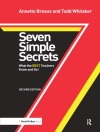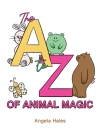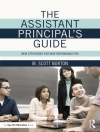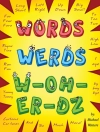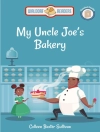Engage your students in scientific thinking across disciplines!
Did you know that scientists spend more than half of their time reading and writing? Students who are science literate can analyze, present, and defend data – both orally and in writing.
The updated edition of this bestseller offers strategies to link the new science standards with literacy expectations and specific ideas you can put to work right away. Features include:
- A discussion of how to use science to develop essential 21st century skills
- Instructional routines that help students become better writers
- Useful strategies for using complex scientific texts in the classroom
- Tools to monitor student progress through formative assessment
When students are curious, they thrive. Give your students the strong base they need to create and share scientific ideas that have an impact in the classroom and beyond.
‘This is a teacher-friendly book that drew me in from the introduction to the end. Through real-life scenarios combined with useful methods for instruction, it illustrates how science teachers can use language as a tool for teaching science.’
–Trina Allen, Science Content Specialist
Measurement Incorporated
‘An eminently readable guide for the novice and experienced teacher. The many practical ideas in this volume demonstrate that improving students’ skills in reading and writing can also improve their understanding and ability in science.’
– Cary Sneider, Associate Research Professor
Portland State University, Portland, OR
Inhoudsopgave
Introduction
New to This Edition
About the Authors
1. Teaching Students to Think Like Scientists
How Well Are U.S. Students Doing in Science?
What Foundations Do We Need to Have in Place?
What Are the Features of Purposeful Science Instruction?
What Do Real-World Scientists Do?
2. Knowing and Using Scientific Language to Communicate Like a Scientist
Language Is the Foundation for Learning
Using Language in Science
Connecting the Common Core State Standards and the Next Generation Science Standards
Next Generation Science Standards Support the Precision of Language Use
Science Instruction
Assess to Instruct: Developing Knowledge and Language
Fostering Independent Word Learning in Science
Word Play Promotes Increased Vocabulary Knowledge
3. Reading Like a Scientist
Connecting the Next Generation Science Standards and the Common Core State Standards
Features That Make Texts Complex
Teaching Students to Read Science Texts
Collaborative Conversations Support Learning and Sharing Scientific Language and Concepts
The Connection Between Vocabulary and Reading Success
Why Teach Reading in Science?
4. Writing Like a Scientist
Connecting the Common Core State Writing Standards and the Next Generation Science Standards
Writing Like a Scientist Is Different
Web Quest: Collecting Data for Writing
Writing Frames: Scaffolds for Scientific Writing
Teaching Scientific Phrasing
Writing Formats in Science
Writing Well-Supported Arguments
Why Learn to Write Like a Scientist?
5. Assessing Student Learning in Science
The Purpose of Assessment in Science
Using Assessment Information
Identifying Literacy-Language Strengths and Needs
Creating Science Assessments
Final Thoughts About Assessment
References
Index
Over de auteur
Diane Lapp, Ed D, is a distinguished professor of education at San Diego State University where her work continues to be applied to schools. She is also an instructional coach and teacher at Health Sciences High & Middle College. Throughout her career, Diane has taught in elementary, middle, and high schools. Her major areas of research and instruction regard issues related to the planning and assessment of very intentional literacy instruction and learning. A member of both the California and the International Reading Halls of Fame, Diane has authored, coauthored, and edited numerous articles, columns, texts, handbooks and children’s materials on instruction, assessment, and literacy related issues. Diane is the recipient of the ILA 2023 William S. Gray Citation of Merit, a prestigious award reserved for those who have made outstanding contributions to multiple facets of literacy development. Diane can be reached at [email protected]. Follow her on twitter @lappsdsu


